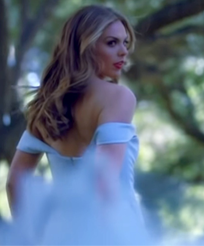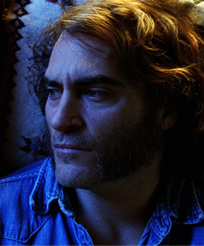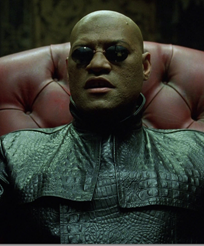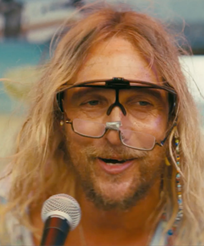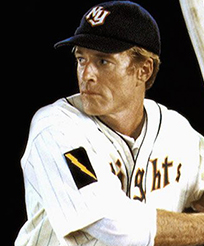Everyone Poops, Taro Gomi’s classic picture book, which methodically documents the way in which every living thing—one-hump camels, two-hump camels, rabbits, horses, humans—poops, and what those poops look like, communicated a simple message to generations of children: shitting is a universal condition.
Perhaps no piece of popular culture since Gomi’s tale, the Noah’s Arc of feces, has grappled with this idea—of how elemental, yet sneakily stigmatized poop is—as directly as Poop Talk, a new documentary from director Aaron Feldman and the identical twin comedians, producers Jason and Randy Sklar. A patchwork of poop-related horror stories, jokes and sociopolitical commentary from a who’s-who of popular comics—including Rob Corddry, Pete Holmes, Kumail Nanjiani, Bobby Lee, Aisha Tyler, Nikki Glaser and many more—the film is as much about shitting itself as it is the way we do (and don’t) talk about shitting. Despite its many outrageous anecdotes—the most extreme of which involves comedian Nick Swardson shitting on his friend’s floor, and blaming it on the dog—the movie manages to offer some sobering insights into the kinds of things we as a society try to cover up, and why.
Poop Talk opens in select cities and becomes available to stream on Amazon and iTunes tomorrow. I caught up with the Sklar brothers to discuss the making of the documentary, the best poop jokes of all-time and America’s absurd resistance to the bidet.
Sam Eichner: How did this project come about? Were you guys just talking poop one day and decide to make a documentary about it...?
Randy Sklar: An old friend of ours, Aaron Feldman, came to us with this idea. He said it’s about poop and we were like, nah I don’t think we can do this. But we thought about it and we came back to him and said, [we could do it] if we can have an honest discussion. If we got our funny friends together to really discuss it in an honest way, what would come of that? That’s the movie we’d want to see.
Sam: I tend to think you can be talking about the most high-minded thing amongst friends and eventually devolve into a conversation about pooping or ejaculating.
Jason Sklar: I think what also happens is you sort of walk the line—in this movie, too—between people sharing hilarious poop stories from their lives mixed with anxieties and attitudes and truthful feelings towards the way we talk about it. We like to say, “This is not necessarily a movie we had to make, but it had to come out. Like a good poop.”
Sam: In addition to all these funny people talking about poop, the movie felt like cultural exploration of poop in a way. Did you guys come to any profound conclusions after making this film, about why humans do or don’t like talking about their shit so much?
Jason: I mean it is a grand equalizer. It is part of the human condition. And for whatever reason, society has stepped away from us doing this outside where people will see us, or we have to try and hide it. Pete Holmes, in the movie, talks about how in a restaurant someone goes to the bathroom, and we all pretend it’s not happening 12 feet away from us. We do whatever we can to cover it up. We sort of spend our lives doing that, when in essence there is this crazy connection we have when we start talking about it. These comedians, a lot of them we’ve known for over a decade, but once we started talking about this stuff, we gained new perspective on who they are as people.
Randy: Pete Holmes was talking about how if he has a good poop, he shared it with his fiancée at the time. And I was like okay now I have an insight into their relationship, they’re open enough with each other where he could be like, “Here honey, come on in here and see this.”
Jason: Over the course of making this movie, I’ve changed my attitude towards pooping. I used to be super uncomfortable talking about it—and now I just have more of an open approach to it, and I’m not afraid to talk about it or share. So in a weird way, we’re trying to knock down a stigma of something, just by having these people be so open and vulnerable about it.
Sam: Is there anything you learned over the course of making this film, from a biological or cultural perspective, that really surprised you?
Randy: The biggest man who you would think would be able to talk about it so easily, may not be able to. And then a woman who you might think be protective just unloads. It’s amazing, the universality of the whole thing. I secretly think that this is the type of movie that reaches farther than what we see right now, because everybody’s fascinated by it.
Jason: The thing I learned the most is how much we need to bring the bidet into American culture. The fact that we’ve held out seems bizarre. There was a description [given] in the film [from Vijal Patel], like, if you had crap on your arm would you just go get a towel and wipe it off and just say you’re good? No, you’d wash it off with water first. That simple example for me was the most eye-opening thing in the world.
Sam: Maybe this movie will start a movement.
Randy: No pun intended.
Jason: I think if you put one in every nice hotel, people would start to bring them into their daily lives.
Sam: Why do you think about Americans as so resistant?
Jason: I think Americans fear the mess associated with it—that they won’t be able to control the water.
Randy: I also think it’s a very European idea, and there’s this bizarre backlash towards European ideas and ideology.
Sam: I think Americans are less comfortable with things going up or towards their butt than Europeans.
Randy: There might be a bizarre homophobic thing.
Jason: Rob Corddry talking about the different types of water flows he can conjure up in his special toilet, the joy with which he talks about that...Even talking about his kids...I mean he might be more joyful about that, and he loves the hell out of his kids.
Sam: Where would you guys rank poop on the list of subjects that are conducive to great comedy? Are poo jokes ever considered hacky or low-hanging fruit?
Randy: The key is, how do you do it in a way that’s really smart and funny and talks more about the human condition? That’s what we were trying to explore in this movie. Like why is it funny? Slowly this whole movie becomes about how we deal with an uncomfortable subject. Because poo is uncomfortable for people to talk about, to me it makes it so much more fun comedically. I rank it pretty high, but it’s a high degree of difficulty, because if you handle it in a way that feels like low-hanging fruit and you’re just hackily going towards it, you can do a lot damage to yourself.
Sam: Do you have an all-time favorite poop joke? Is there someone you think is the best all-time poop comedian?
Jason: I love whenever Sarah Silverman talks about poop. That’s pretty magical. I love Jordan Rubin’s joke—I don’t know if he did this in the movie, but his joke was, “I smuggled diarrhea in from Mexico in my ass.”
Randy: My favorite joke about poop ever was from Dave Attell. And we didn’t get it for the movie, but it was a great joke where he was like, “I never understood Glade or air fresheners. Like, who are they fooling with this? It’s basically a fight between lemons and ass, and ass is winning.”
Jason: That’s a great joke because what it preys upon is not the shit of it all but the cover up of it. I think what's interesting is that we as a society are moving more and more towards only showing people the best versions of ourselves, certainly on social media. You’re always only showing people the best corner of who you are. And I think when you’re pooping, you’re at your least attractive and most vulnerable, but most relatable. That’s what we tried to capture in this movie.
Sam: Were there any jokes or stories that were too crass to put in there?
Jason: I don’t think so.
Randy: Did we put in the story with Corolla where his friends put poop in his ear?
Jason: We may’ve abridged that. He had a great epic story of actual human feces—
Randy: Being shoved into his ear by a high school friend.
Jason: But that is a crazy story. To sit there and think about that is nuts. But all the other stories were very human.
Sam: I really enjoyed the section of the movie about the difference between men and women talking about poo. Do you think women may feel liberated to talk about their shit now than at any other point in history?
Randy: Who knows, maybe after this movie they will be. You never know. Maybe we start a #MePoo movement [laughs]. No, but I do think we are at a point where everyone should be able to speak about it, and we hope that the movie will have the same affect on us that it will have on the general audience. Open up. Share. Let’s de-stigmatize it in some ways. The movie is a metaphor for pooping itself—when you hold it in and you don’t let it out, that’s when problems start.







